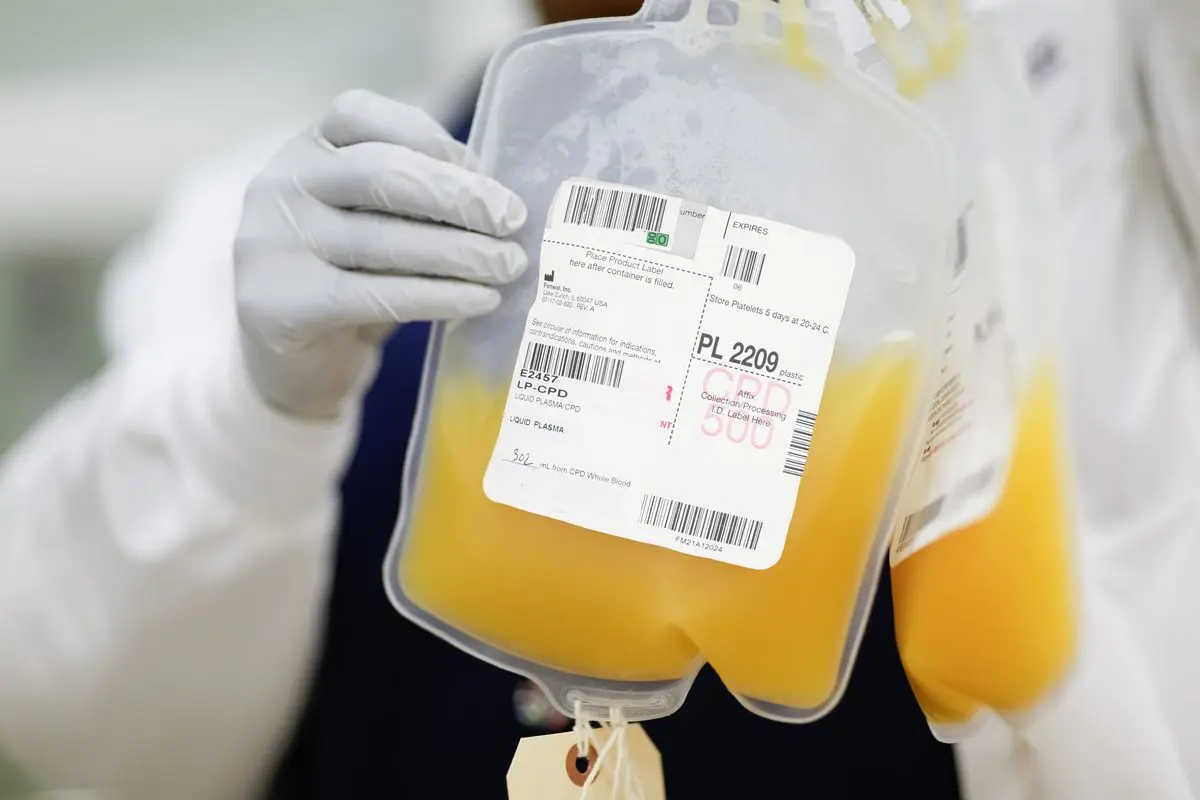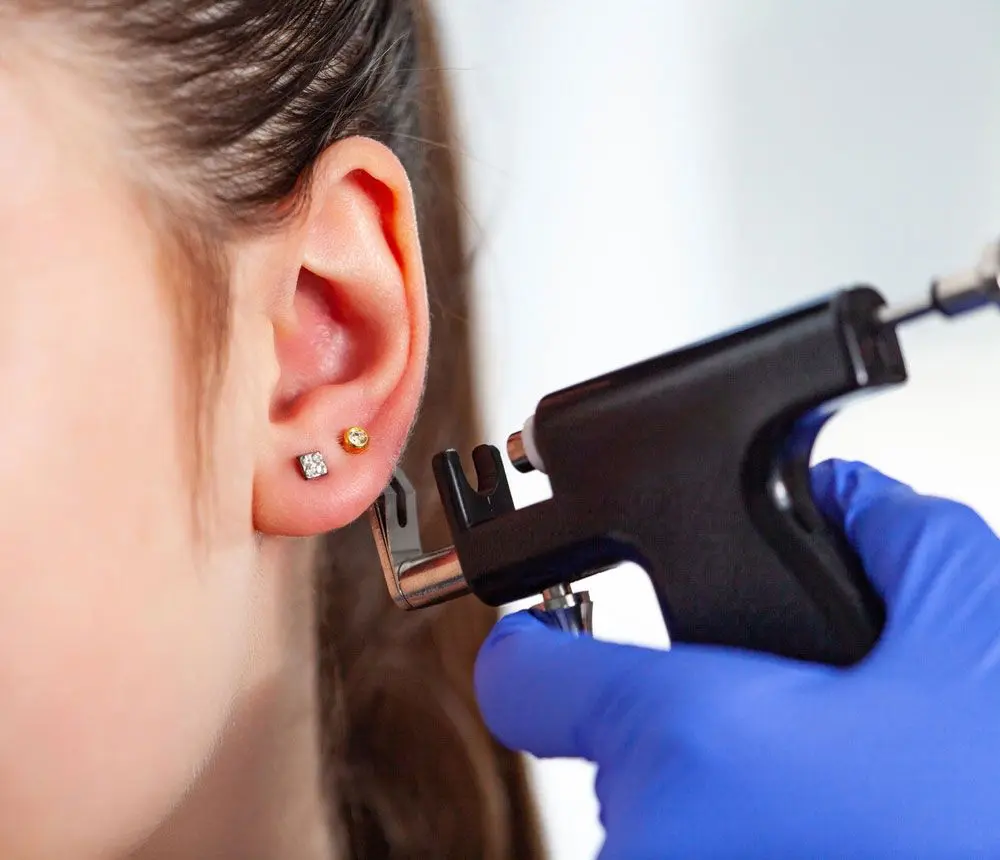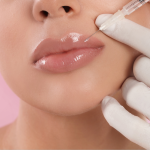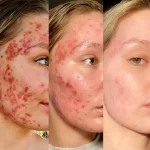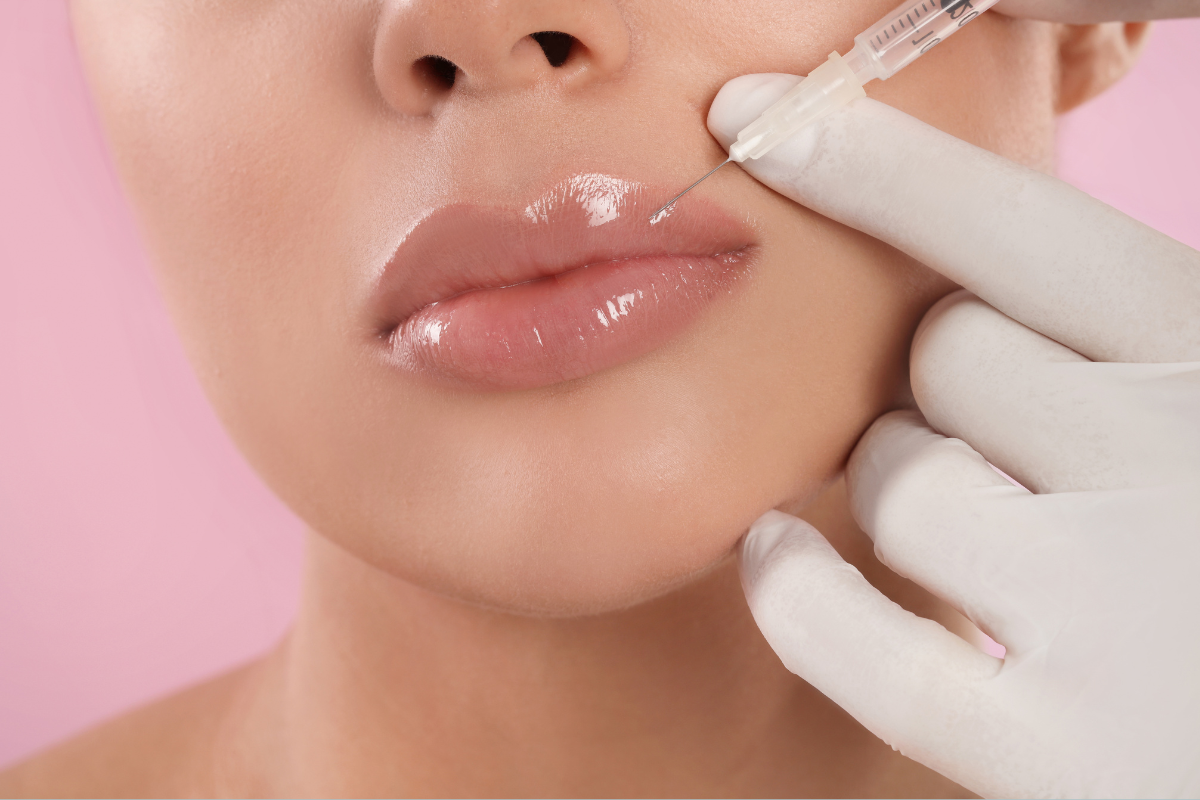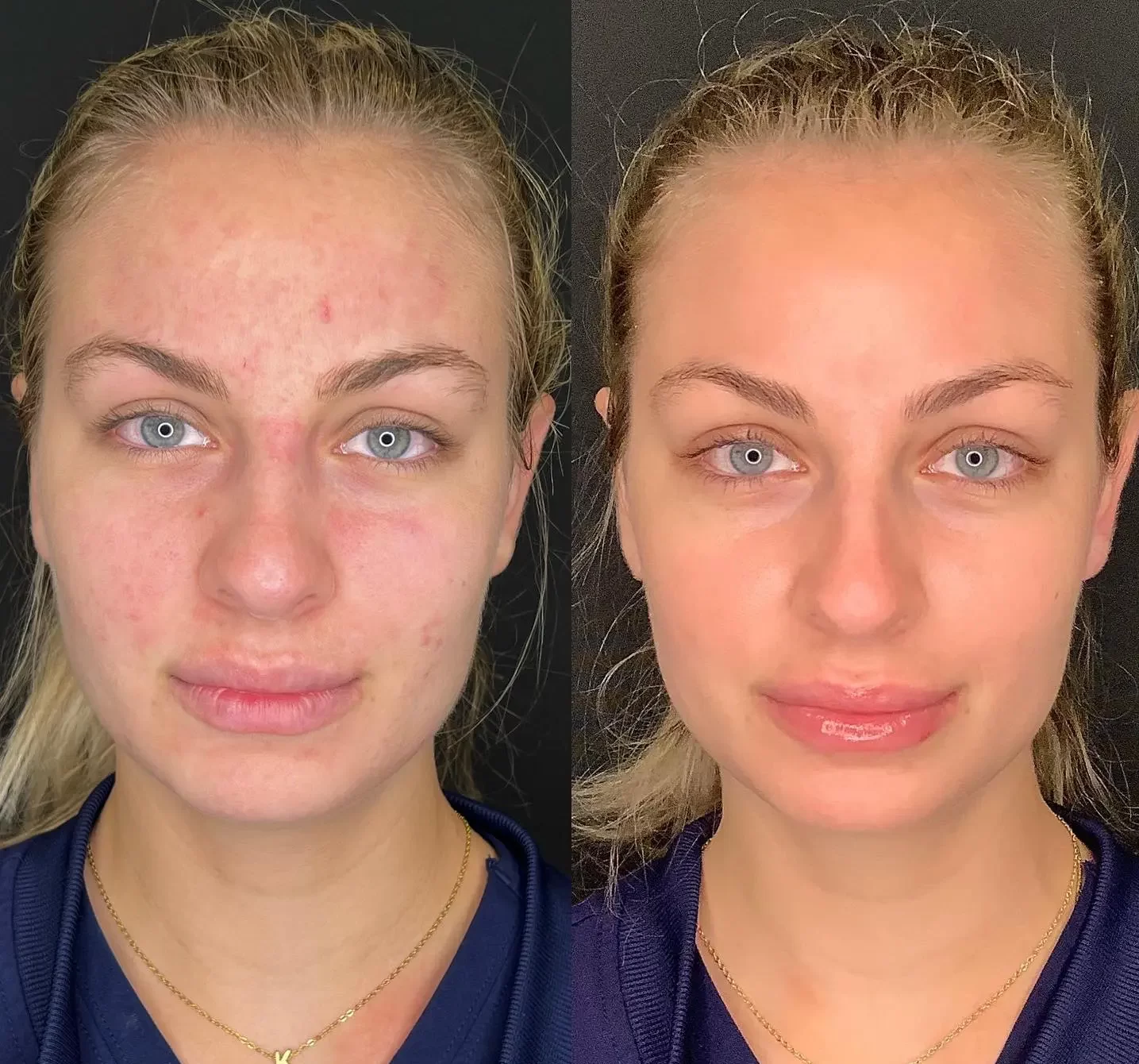You cannot donate plasma while taking Accutane because isotretinoin can be transferred through donated plasma and pose safety risks to specific recipients. When people ask, “Can you donate plasma while on Accutane?” The answer is no until the medication clears the body.
Centers follow strict rules to protect patients who may be pregnant or medically vulnerable. You can donate again only after you complete the required waiting period and a staff member confirms your eligibility. This approach keeps both donors and recipients safe.
DermonDemand guides patients through sensitive health decisions, and Dr. Hannah Kopelman offers clear medical insight on this topic. This article explains how Accutane affects donation eligibility and what steps you should take to donate safely.
Key Takeaways
- You cannot donate plasma or whole blood while taking Accutane because isotretinoin can transfer through donated products and pose risks to vulnerable recipients.
- Donation centers require at least a one-month waiting period after your last dose to ensure the medication has cleared from your system.
- Accutane is one of several medications that affect donor eligibility, and staff must review all active prescriptions before approving donation.
- Acne itself does not block donation, but certain acne medications can temporarily disqualify you for safety reasons.
- You can confirm your eligibility by speaking with your local donation center or your dermatologist, who can guide you on safe donation timelines.
Donating Plasma or Blood While on Accutane
Many people ask Can you donate plasma on Accutane? Because they want to help others or donate blood. The short answer is no, because isotretinoin remains active in your system and poses a risk to recipients.
Donation centers consider Accutane a temporary exclusion and ask donors to wait until the medication clears. This rule also applies if you ask, “Can you donate blood while on Accutane?” because the same safety principles apply, especially for patients who use Accutane for oily skin.
Accutane increases the risk of specific congenital disabilities, which is explained in detail in our guide on isotretinoin side effects, and plasma can reach patients who are pregnant or may become pregnant.
This risk is the main reason donation centers block both plasma and whole blood donations during treatment. You should also avoid donating platelets while taking Accutane, as the same transfer risk applies. These rules protect recipients from unnecessary medical conditions.
Safety Risks: What Happens if You Donate Plasma on Accutane?
Donation centers follow strict safety protocols to prevent Accutane from reaching vulnerable patients. If you donate on Accutane, your plasma may endanger recipients who rely on safe transfusion products.
These patients include pregnant individuals, people with low red blood cells, and people receiving treatments for exposure to hepatitis or post-exposure prophylaxis.
Centers enforce rules because isotretinoin remains in your system and passes into donated plasma. This can affect your eligibility until the medication clears. Patients who receive your plasma may face harm, and this risk remains the same even if you feel healthy.
These safety factors explain why donation centers require a waiting period before you donate again.
How Long After Accutane Can You Donate Plasma
Accutane stays active in your body for several weeks. Donation centers use a standard timeline and require most people to wait at least 1 month after their last dose before donating blood or plasma.
This waiting period allows isotretinoin to clear, reducing the risk of transfer to a recipient. The exact time may change if you take higher daily doses or longer courses, since isotretinoin takes longer to clear the body.
Isotretinoin works by reducing oil production and slowing skin cell buildup, and these actions take time to reverse. Some people metabolize the medication more slowly due to weight, metabolism, or other medical conditions.
These differences explain why donation timelines vary from person to person. A donation center may ask additional questions to confirm that the medication has cleared, which helps determine when you are eligible to donate blood safely again.
Medications That Disqualify Plasma Donors
Accutane is one of several medications that affect donor safety. Others include Aubagio (teriflunomide), Arava (leflunomide), and Cellcept (mycophenolate mofetil).
These medications carry risks that transfer through plasma or whole blood and may harm vulnerable recipients. Donation centers list them as temporary or long-term deferral medications.
Some medications affect the immune system, while others prevent blood clots or carry risks for pregnant recipients. Because each medication works differently, centers use drug-specific rules to guide safe donations.
If you take any long-term prescription medication, please let the staff know so they can confirm whether it may affect your eligibility.
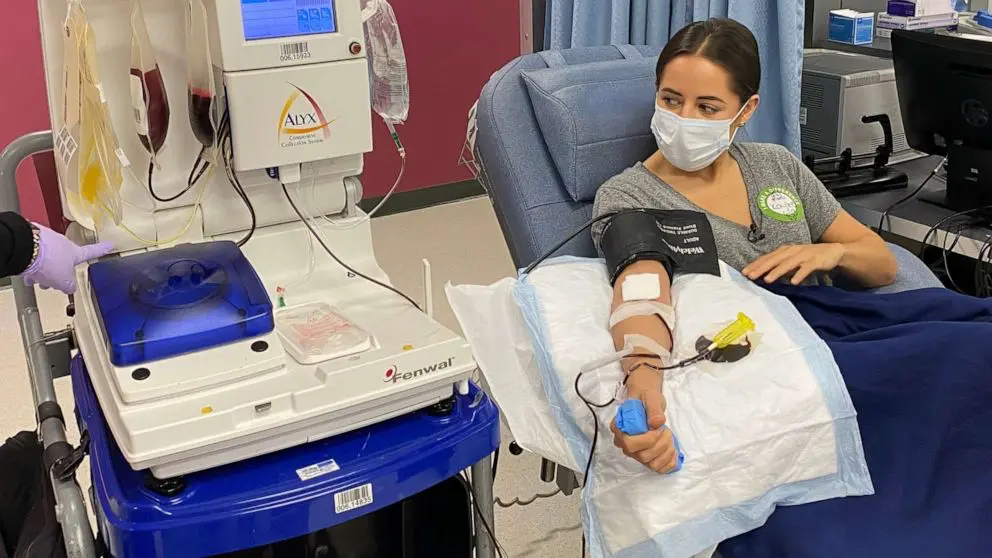
Does Acne Affect Plasma Donation Eligibility?
Many people assume acne itself blocks donation, but this is not true. Acne does not make you ineligible to donate blood because it does not affect recipient safety.
The only issue arises when acne treatment includes active medications such as isotretinoin. In these cases, the medication, not the condition, is the reason for donor exclusion.
If you manage acne with topical treatments or use simple forms of birth control like oral contraception, you may still be able to donate, and you can review more details in our section on acne treatment.
You only need extra screening if your medication poses a risk through the plasma. Donation staff can check your treatment list and tell you if any drugs affect your eligibility.
Official Plasma Donation Guidelines
Most centers follow national standards that match Red Cross policies. These guidelines list isotretinoin as a temporary deferral medication because the drug can be transferred in small amounts.
Centers also apply the same rules to whole blood and to people who want to donate platelets. Staff use clear timelines to keep both donors and recipients safe.
Local centers may follow the same rules or add their own additional questions. For example, centers in states like Georgia, Idaho, Maryland, and Massachusetts may ask about recent travel or exposure to hepatitis.
Centers also ask about prep or pre-exposure prophylaxis use, blood thinners, anal sex, or recent medical conditions to ensure safe donation. These questions help screen donors accurately and protect patients who rely on safe transfusion products.
How to Check Your Eligibility Today
If you want to confirm your current eligibility, contact your nearest donation center and ask about the rules for isotretinoin. Tell the staff when you last took your dose and ask whether you need to wait longer.
Ask whether any of your other medications, such as treatments to prevent blood clots or immune system drugs, may affect your eligibility. Staff can provide clear steps to confirm when it is safe to donate.
You can also review your medication list with your dermatologist. Dr. Hannah Kopelman advises patients to check donation timelines before giving plasma or whole blood. She reminds patients to wait to donate blood until all active medications have cleared.
DermonDemand can help you understand how isotretinoin interacts with your overall health and guide you toward safe donation practices.
Book your private dermatology consultation with DermonDemand and get expert guidance from Dr. Hannah Kopelman today.


